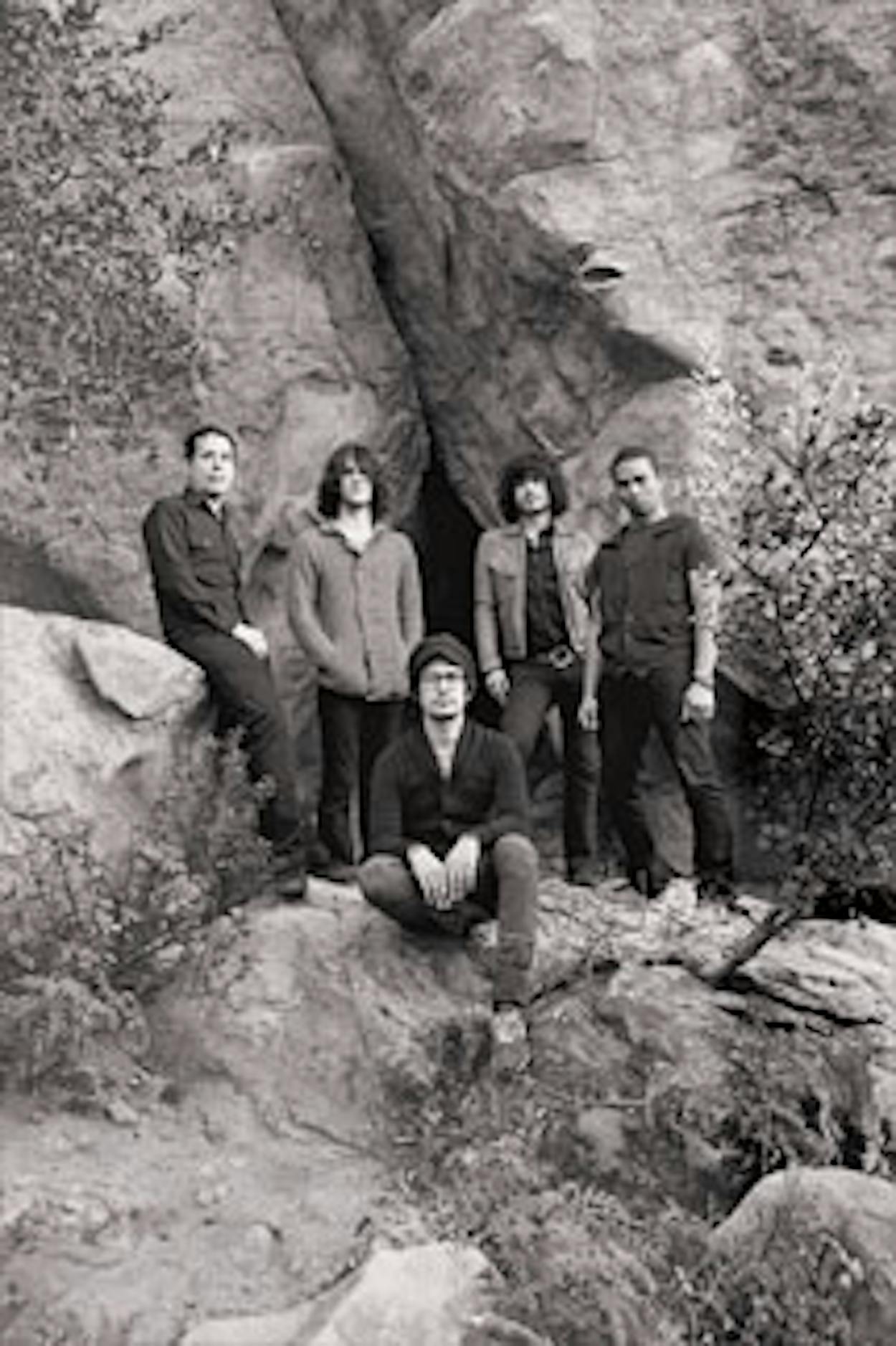In 2001, when OMAR RODRÍGUEZ-LÓPEZ (seated) and Cedric Bixler-Zavala walked away from the El Paso band At the Drive-In, few of their fans could have predicted the path the pair’s music would soon take. With the Mars Volta, the longtime friends left behind their previous group’s post-hardcore tendencies for something that transcends categories. Like the five albums that preceded it, the band’s latest, NOCTOURNIQUET (Warner Bros.), is an undefinable amalgam of jazz rock, art rock, Krautrock, and heavy metal. Recently At the Drive-In announced that it was reuniting for a series of concerts, beginning with two dates this month at the California music festival Coachella.
Where are you living these days? It seems like every time I read an article about you, you’re living somewhere different: New York City, Amsterdam, Guadalajara.
I’m in Texas. I’m back with my family, taking care of my mother.
Your new album is called Noctourniquet, which sounds like the title of the great, lost Spinal Tap album. What does it mean?
[Laughs.] It’s a combination of the words “nocturnal” and “tourniquet.” It’s as simple as that. It doesn’t have any particular meaning, it just creates an image in my head when I hear it.
I know that some of your albums are concept albums that deal with heavy themes. But when I listen I don’t really pay attention to that stuff—I just let the music stomp all over me. Would you and Cedric be insulted by that?
Maybe he would, because that’s his territory. I just do the production and the music. I’ve never asked Cedric in twenty years what his lyrics mean, ever. It doesn’t matter. It just doesn’t.
The second track, “Aegis,” starts off sounding like Radiohead, but then you blow it up and take it in a different direction. Are you paying homage to Radiohead or making fun of them?
I would never make fun of another artist or imitate them. But I wonder what influences we share with Radiohead that would make each of us arrive at that same sound. [The avant-garde German group] Can is a big influence on them, and on us. I’ve only heard a little of Radiohead’s music.
That’s surprising, because Radiohead’s one of those bands that people in their thirties have in common. Are you out of the loop on contemporary music?
I don’t listen to a lot of rock music. I’m aware of bands that have a lot of guitar, but I’m not specifically drawn to them.
A few years ago, when you and the other guys from At the Drive-In started talking again after a long separation, you said there would never be a reunion. And now you’re doing a reunion. What changed your mind?
Time. I’d spent years saying I’d never play with those guys again. And then four years ago, they came to my house, and since then we’ve been hanging out and working our issues out. Last year we had to start dealing with business because we got back the masters to our album Relationship of Command. Things just started to change.
Would recording together be out of the question?
I keep saying no, we’re not going to record any music, but I’ve just spent eleven years saying, “Over my dead body will I play with these guys!” So I’ve quit saying no.
You’ve had a lot of side projects—the Omar Rodríguez-López Group, collaborations with [former Red Hot Chili Peppers guitarist] John Frusciante and DJ Nobody. What drives you to wear so many different guises?
I get bored very easily. Cedric and I, when we were on tour, we’d get so bored in hotels that we’d take down the awful painting in our room, make a painting on the wall behind it, and then put the painting back up. The only person who will ever see it is the poor janitor who has to change the paintings out every five or six years. There’s something special about that.









